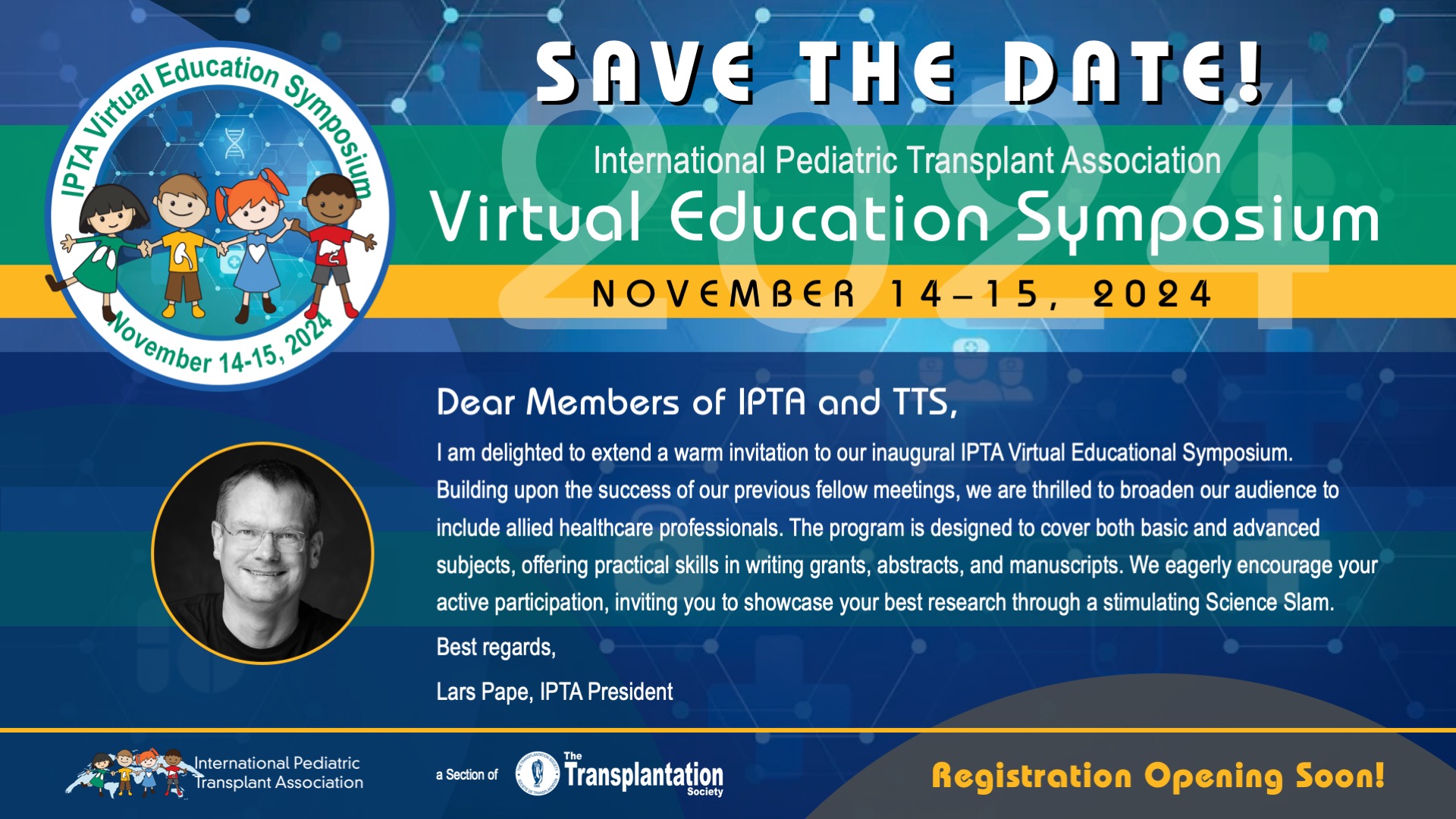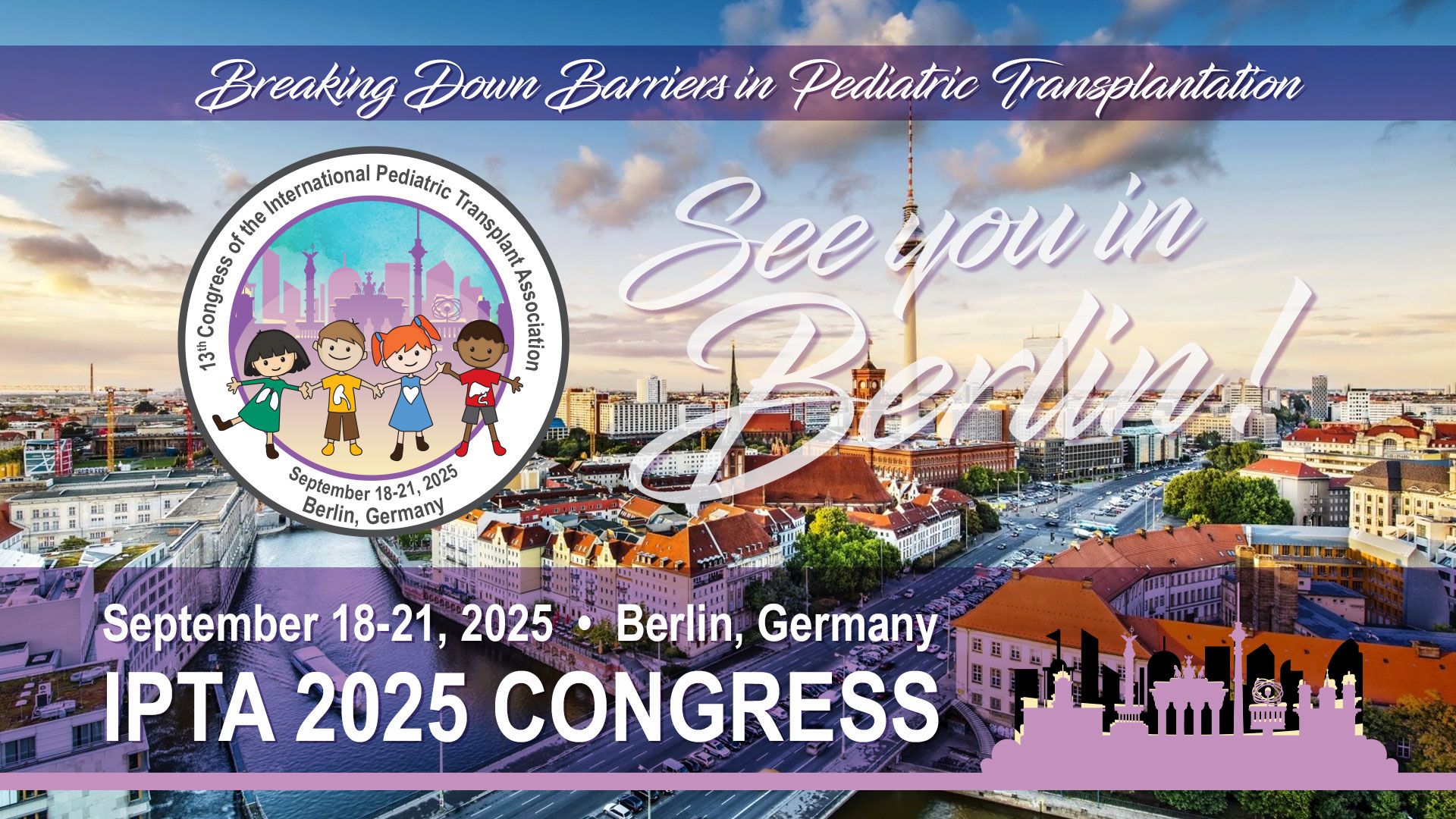Submitted by Tom Blydt-Hansen, Ethics Committee Chair, on behalf of the Ethics Committee
Equitable Access to Transplant Infrastructure and Resources for Pediatric Transplant Recipients
Behind the life-saving promise of organ transplantation lies a stark reality: the availability of resources for pediatric transplant care significantly lags behind adult programs. This inequity not only impacts the quality-of-care delivery, but in some cases precludes the establishment of pediatric transplant services altogether. In response to this pressing issue, the IPTA will formulate a position statement to illuminate the multiple facets of this issue, with input from the membership. The goal will be to empower IPTA members to advocate more effectively for equitable access, to dismantle systemic barriers and promote fairness in resource allocation.
There are several significant disparities present within pediatric and adult transplant care. These inequities include differences in access to medical facilities (both proximity and pediatric specialization), transplant specialized nursing, allied health, medical and surgical services, and dedicated funding of research and innovation – especially those innovations that must be tailored to varying pediatric-sized recipients. Consider the following case scenarios:
Patient Profile 1:
A 12-year-old diagnosed with atypical hemolytic uremic syndrome (aHUS) leading to renal failure requiring a kidney transplant. He resides in a rural area, far from the single pediatric transplant centers in his country, which burdens the family with long distances to travel with high transportation costs and extended periods away from home.
Patient Profile 2:
A 9-year-old is diagnosed with acute liver failure (ALF) and is in need of an urgent liver transplant. Despite having a pediatric transplant center in their region, the facility is small with a general pediatric mandate, and aside from medical expertise lacks transplant-specialized personnel that is available in larger adult transplant centers. Smaller numbers of patients limit personnel numbers and specialized capacity building due to turnover. The result is delays in treatment, longer waiting times for transplant assessments, and potentially inferior outcomes for pediatric patients.
Considering these two scenarios:
What aspects are similar to resource struggles you experience in your own institution – and what others do you notice? What supports are available from the adult transplant programs and what resource differences do you perceived relative to those available for adults? What information would you need to advocate for better resources to care for your patients?
The disparities in resource availability between pediatric and adult transplant programs are multifaceted, involving socioeconomic and demographic factors. One primary challenge lies in funding allocation, where pediatric programs may receive less financial support compared to their adult counterparts. This financial shortfall translates into limited infrastructure, staffing, and research opportunities in pediatric transplant centers. Additionally, geographic disparities exacerbate existing healthcare inequities, as children in rural or underserved areas face major barriers in accessing specialized pediatric transplant care, leading to delayed interventions and inferior outcomes.
The Ethics Committee is developing a position statement to recognize the urgent need to address these disparities and advocates for equitable access to pediatric transplantation. Addressing age discrimination, geography, and other factors influencing health disparities ensures that all children, regardless of their circumstances, have equal access to life-saving transplantation services. To achieve this goal, the statement will propose specific advocacy recommendations aimed at dismantling systemic barriers and promoting fairness in resource allocation to children.
Please submit your feedback here















